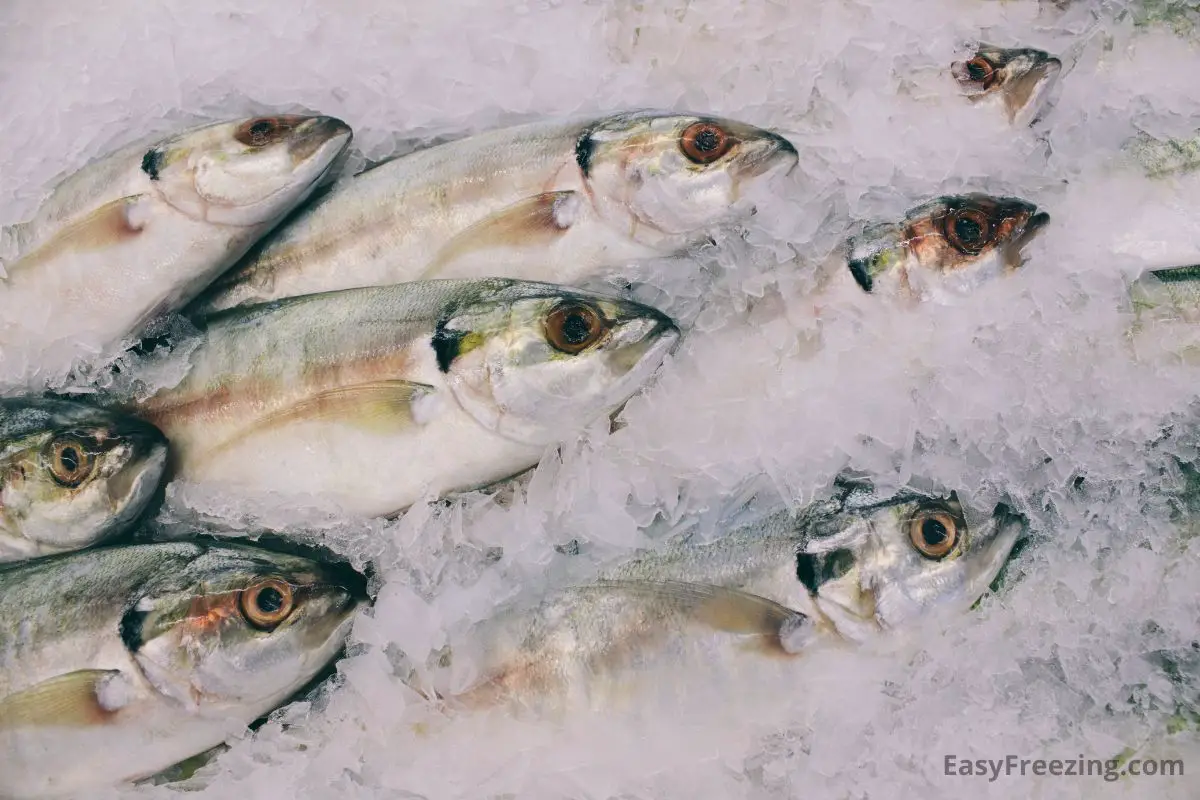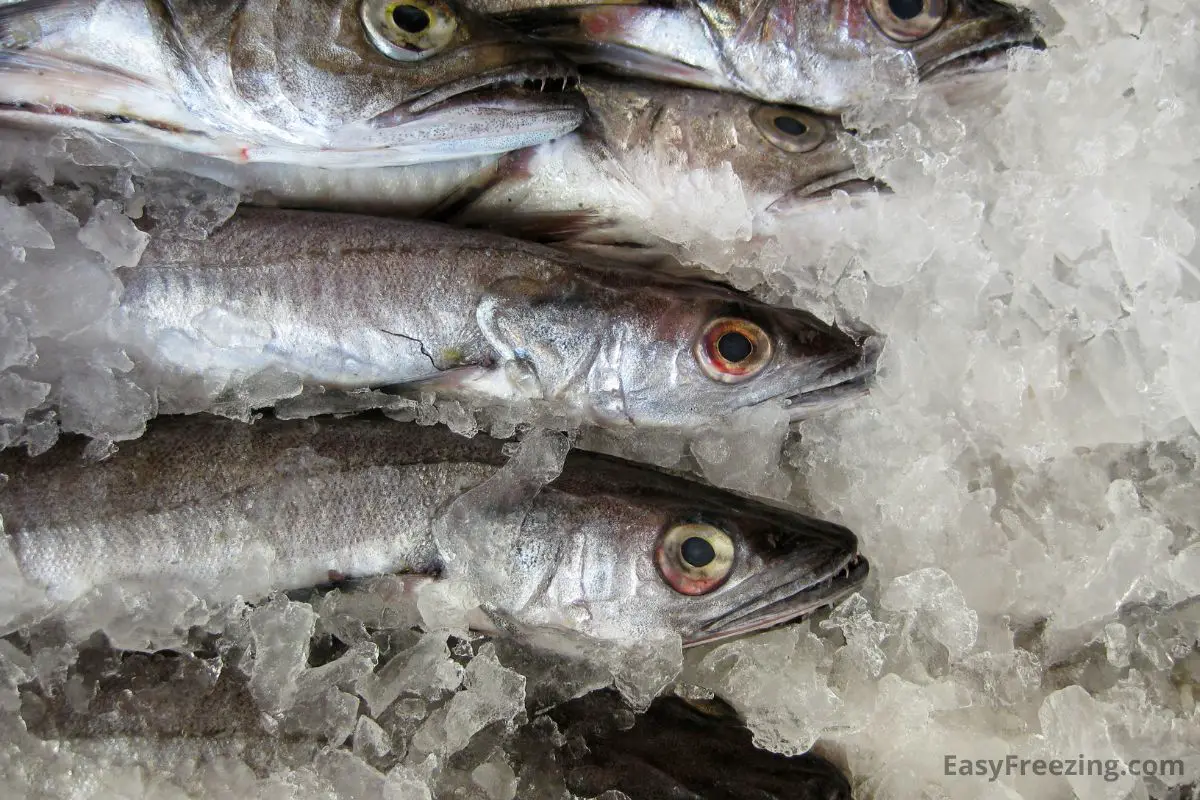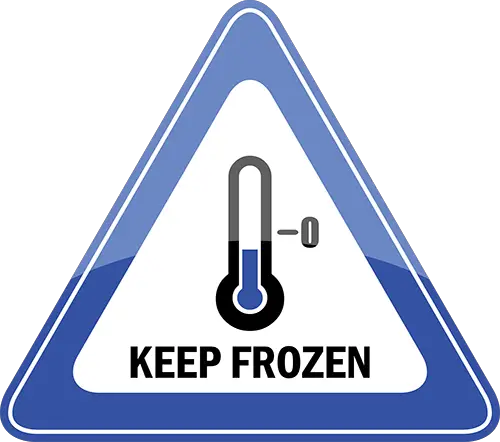Freezing Fish The Right Way (Find Out Here)
Caught fresh or purchased in bulk, it’s important to know how to freeze fish properly for long-term storage.
If you freeze fish correctly and defrost it the right way, you will likely see minimal to no difference in the taste or texture from when the fish is freshly cooked compared to when it is frozen, thawed, and cooked.
In many instances, we cannot cook all the fish caught or acquired from the market, so our best option is to freeze and cook it at a later date. This article covers the best ways to freeze fish to enjoy later!

Why Freeze Fish
The temperature conditions in a freezer prove to be just fine for a variety of fish, thus assisting in the process of preserving the fish’s texture as well as taste.
Many types of fish, such as haddock or cod are cold-water fish. Naturally, they live in water that is only comparatively a few degrees above the freezing point, so keeping them in the freezer only makes sense.
Fresh frozen fish does not lose its flavor, as compared to commonly frozen meats such as chicken or beef. Additionally, oily forms of fish such as trout and salmon tend to freeze extremely well and, along with smoked fish, can be kept frozen for approximately three to eight months.
More delicate forms of fish such as sole, a type of white fish, also tend to freeze relatively well, but it is advised to keep these frozen for only a month or two at most.
Additionally, optimal taste and texture is quite heavily dependent on whether the fish itself is being frozen in the correct manner. For example, there are many suggestions and popular beliefs that freezing fish in water is ideal. This actually makes the fish waterlogged after defrosting and so, in truth, it’s not ideal at all!
Fresh fish is an extremely tasty protein source, however, it has a comparatively short shelf life when refrigerated, so freezing fish will increase its expiration date considerably. Below you’ll find several quality tips to ensure your frozen fish remains top-quality for a period of several months or more.
Pro Tips For Freezing Fish

- When it comes to freezing fish, air is the biggest enemy. Any form of air that touches the stored fish will cause freezer burn and degrade both the taste and texture. It is important to keep air from coming into direct contact with the fish. This can easily be done by vacuum-sealing, glazing or wrapping the fish tightly.
- If catching fish or buying fresh fish is a frequent occurrence in your home, then it is highly advised to invest in a vacuum sealer. You will definitely find it worth the cost and will use it quite frequently. There’s no going back after you’ve used a vacuum sealer!
- If vacuum sealing is not for you, then glazing the fish is your next best option. This can be done by dipping the fish in cold water and then putting it on a sheet pan, and placing it into the freezer. Proceed by letting that water freeze, then repeat this process several more times to create an ice glaze around the fish of about 1/4 inch. The glazed fish can then be placed in a freezer-friendly plastic bag and put in the freezer for long-term storage.
- Another common method is to wrap the fish in plastic wrap, and then put it into a plastic bag. This method is not as effective as the others when it comes to preventing moisture loss as well as freezer burn, but is widely used as well.
Freezing Fish (Things To Keep in Mind)

Thawing Frozen Fish
When you’re ready to thaw the frozen fish, it’s advised to carry this process out in gradual steps. For instance, you do not want to put the frozen fish in a microwave in the attempt to thaw it faster. This will definitely ruin the fish’s texture and taste.
The best way to let the fish thaw is to leave it in the refrigerator overnight or soak the container in which it was frozen in cold water. You can also thaw the fish at room temperature. The idea is for the fish to remain cold and gradually reach room temperature slowly.
The best method of thawing frozen fish, if you are in a rush, is to run cool water over the packaging for 5-10 minutes. Keep it cool to prevent any harmful bacteria from forming.
Freezing Fish in Water
A lot of individuals tend to use the water freezing method with fish, causing a loss of flavor upon defrosting. Fresh fish, whether self-caught or store-bought, tend to freeze well for approximately three to six months, depending on the type i.e. fatty fish store for 3 months maximum, and if the fish is stored using airtight methodology.
Storing Fresh Caught Fish in Preparation for Freezing
If you are looking to store the fish you have freshly caught, it is advised to keep the fish in as cool temperatures as possible, i.e. ideally in ice, or in a shaded area. Letting a freshly caught fish flop about on hard surfaces causes the fish to be bruised and thus lower quality. So try to ensure this does not occur, in order to retain its freshness.
Cleaning Caught Fish
Additionally, before you proceed to gut and clean the fish, try to keep the fish cool on ice in order to prevent it from drying out, positioned with a raised bottom in order for any water to drain.
Remember, keeping the fish in water significantly causes a loss of flavor; and so, if your fishing trip is especially long, then try to periodically drain the water, and continue to keep the fish as cool as possible until it can be cleaned and stored.






